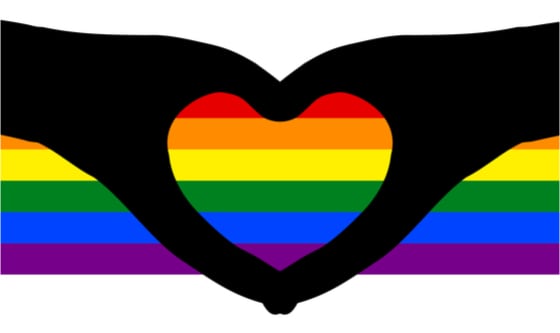
What to tell? Trans people and consent
Sexual interactions should be based on consent and complete transparency. As transparency informs] consent, it should ideally include matters like gender identity.
In an interview on The Breakfast Club, a morning radio show in the United States, comedian Lil’ Duval was asked what he would do if he found out he had unknowingly had a sexual experience with a trans-woman. ‘This might sound messed up but I don’t care – she dying.’
His hateful and violent tone aside, the interview fueled a debate on whether consent and disclosure should apply to gender identity and, therefore, transgender people. However, before we discuss the different sides of the argument, let’s cover the important aspects of the identity.
Gender Identity
Gender identity is how you, in your head, think about yourself.
So even though you were born a as man biologically and were assigned male gender at birth, you can identify as a woman. You can express your gender identity in the way you act, dress, behave, and interact with people and the world around you.
While some transgender people use only outward expression to show who they really are, others decide to medically change their outer selves through surgery or enhancements to match who they know they are internally.
A person’s gender identity is not necessarily linked to their sexual orientation. Sexual orientation is who you are sexually, physically, and emotionally attracted to.
Anti-transgender violence
People who are seen as ‘different’ (like transgender people) are usually not received well. The fact that they express or alter themselves contrary to what society expects, leaves them vulnerable to people who lack tolerance.
Bullied, stigmatized, and on the receiving end of death threats, transgender people deal with violence more than any other group of people.
According to an article by the Guardian, the transgender people featured said, ‘This violence is often justified on the grounds that we’re not “real” women (or men), that we’re tricksters, sick, and deserve to be beaten and murdered.’
The life expectancy of transgender people in the Americas is between 30 and 35, says the Inter-American Commission on Human Rights in a 2014 report.
To make matters even worse, transgender people have very few options for protecting themselves or seeking justice.
And the media has been part of the demonization of the transgender community by accusing them of attempting to ‘erase gender’.
It is important to be sensitive when talking about trans issues so as not to make the situation worse with myths and misconceptions.
Consent
Now let’s talk about consent. Consent means that, before having any kind of sex, both people need to agree by saying they want to. Body language doesn’t count because different signs and signals mean different things to different people.
It’s also important to know that consent can be taken away at any point during sex should either person change their mind.
No means no and sometimes no can come after you are already halfway – but it still counts.
Is consent only important for straight people?
Sexual activity without consent is rape. Consent, however, is not only about saying yes to sex, it is also about being informed of everything that comes with having sex and the person you are doing it with. This includes knowing the full extent of the sexual commitment you are making.
Which brings us back to the Breakfast Club interview.
Lil’ Duval’s opinion has been taken up by cisnormative people (people who believe that gender binaries are the norm: there are only two genders) who feel not telling a sexual partner about your gender identity takes away their right to choose. And that it can be a form of sexual assault. This is because sex is only legal when it is safe and entirely consensual – a person must be aware and readily capable of saying no to all aspects of any sexual experience.
Purposefully failing to disclose one’s gender identity means leaving out information that could expose the other person to possible emotional or mental pain if they found out.
A person’s sexual orientation is not a choice and should therefore not be treated as something flexible.
Wanting a transgender person to identify themselves before sex isn’t a matter of bias: it is a matter of consent and should not be labelled as transphobic.
On the one hand, a trans person’s identity is their reality. ‘If I identify a woman/man, I am a woman/man’, therefore telling someone their gender identity is pointless: the attraction and interaction they have with people is based on this reality.
For example, if I identify as a girl and you are attracted to me as a girl then it shouldn’t matter that I was born a boy because you are attracted to me now, in the gender I am currently presenting as.
This, together with the amount of violence transgender people face, makes it difficult to navigate the topic of consent.
Consent is the basis for any sexual interaction. If equality is for all, then every community should be held to similar standards and disclosure should extend to gender identity.
But because safe spaces are yet to be created for transgender people, would it be cruel to enforce consent for a community that struggles to protect themselves from violence or find justice?
Join the discussion on Facebook or below. If you have questions about consent or trans issues, head to our forum.
